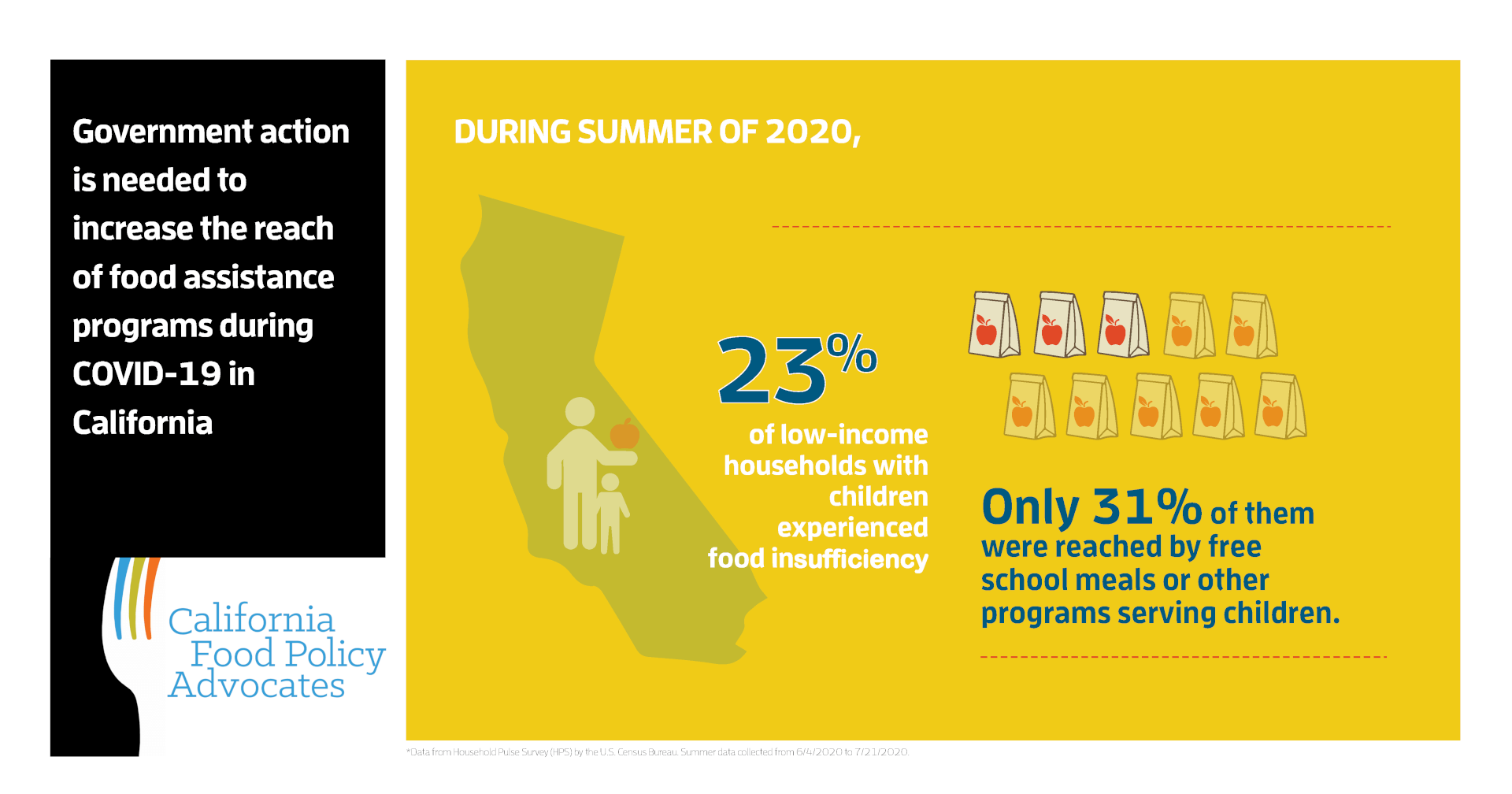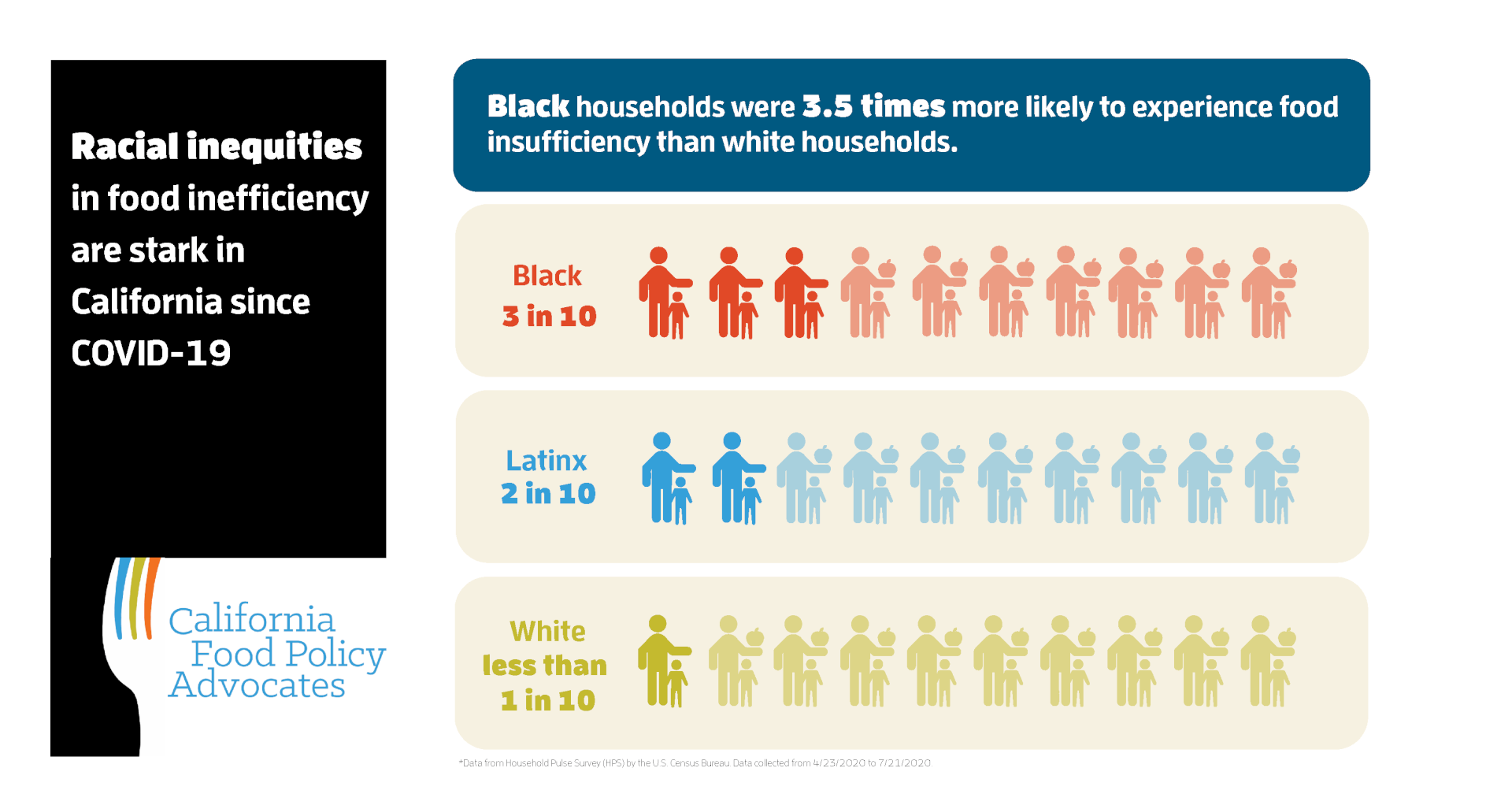Summer has come to an end, but both COVID-19 and hunger continue to threaten the lives of Californians, especially Black and Latinx people. Across California, the COVID-19 pandemic and its economic fallout are deepening health and food access inequities. The need for nutrition assistance is high, especially among adults living with children:

And data verifies that children and Black and Latinx families are hardest hit:
(For presentation purposes, the share of households above have been rounded to the nearest whole number. Actual rates were 27% of Black Households, 19% of Latinx households, and 8% of White Households.)
California families need more help putting food on the table during the pandemic. We must address the immediate need for food right now and advocate for smart, evidence-based solutions designed to dismantle the systemic injustices that perpetuate hunger and food insecurity over the long term.
Congress recently passed a Continuing Resolution that will extend Pandemic-EBT through next school year and continue critical program waivers. While these actions will offer significant help, alone they are not enough. Federal policymakers must keep up the fight for comprehensive COVID relief.
In the absence of federal action, state leaders must also act to prevent disparities from worsening. Nearly thirty percent of households eligible for our largest federal food assistance program, CalFresh, are not being reached. That doesn’t even include the million or more who are likely eligible, but can’t participate due to their immigration status. State leaders can step up and fill this gap by providing excluded immigrants with a comparable form of nutrition assistance. And to close the CalFresh participation gap, state leaders can help by maximizing federal waivers to ease application and reporting burdens, especially for older adults and people with disabilities. By making CalFresh easier to access, fewer children and families will go hungry and we can access federal dollars to help stimulate the state’s food and agriculture sectors.
CFPA recognizes racial inequity as a root cause of poverty and hunger, and we urge policymakers to do the same – and take action to address it.
We will not accept inequity, especially when it comes to making sure our kids, parents, and grandparents get fed.
Technical Notes
Data for this webpost was drawn from the Household Pulse Survey (HPS) by the U.S. Census Bureau. Data collected from 4/23/2020 to 7/21/2020. Detailed technical notes can be accessed here.
Questions?
Contact: Jared Call at 323.401.4972 or visit www.cfpa.net/covid19




